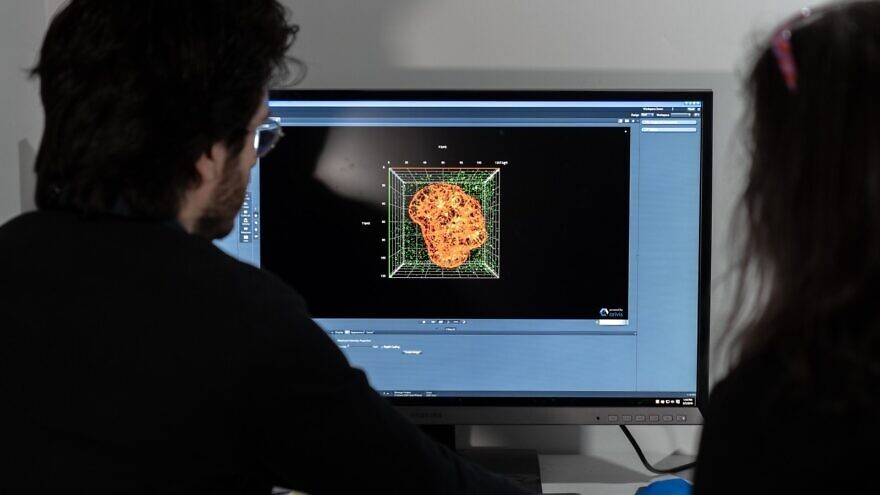Israel-US team think existing medication may stop COVID-19 in its tracks

Professor Yaakov Nahmias’s lab at Hebrew University in Jerusalem. Photo by Daniel Hanoch.
According to the researchers, an FDA-approved cholesterol-lowering drug may help downgrade virus threat to that of common cold.
Could a well-known cholesterol-lowering drug help treat COVID-19? A research team led by Hebrew University of Jerusalem professor Yaakov Nahmias says that early research looks promising.
In the last three months, Nahmias and Dr. Benjamin tenOever at New York’s Mount Sinai Medical Center have focused on the ways in which SARS-CoV-2 (the scientific name for the virus that causes COVID-19) changes patients’ lungs in order to reproduce.
Their major finding is that this virus prevents the routine burning of carbohydrates. As a result, large amounts of fat accumulate inside lung cells, and this enables the virus to reproduce.
This new understanding of SARS-CoV-2 may help explain why patients with high blood sugar and cholesterol levels are often at a particularly high risk to develop COVID-19.
Subscribe to The JNS Daily Syndicate by email and never miss our top stories
With this information in hand, Nahmias and tenOever began to screen FDA-approved medications capable of interfering with the virus’s ability to reproduce. In lab studies, the cholesterol-lowering drug Fenofibrate (Tricor) showed extremely promising results.
By allowing lung cells to burn more fat, fenofibrate broke the virus’s grip on these cells. Within five days of treatment, the virus almost completely disappeared, the researchers report in this week’s Cell Press Sneak Peak.
“With second-wave infections spiking in countries across the globe, these findings couldn’t come at a better time,” said Nahmias. “If our findings are borne out by clinical studies, this course of treatment could potentially downgrade COVID-19’s severity into nothing worse than a common cold.”
This article was first published by Israel21c.
Republish this article in your newspaper or website
Support Jewish Journalism with 2020 Vision
One of the most intriguing stories of the sudden Coronavirus crisis is the role of the internet. With individuals forced into home quarantine, most are turning further online for information, education and social interaction.
JNS’s influence and readership are growing exponentially, and our positioning sets us apart. Most Jewish media are advocating increasingly biased progressive political and social agendas. JNS is providing more and more readers with a welcome alternative and an ideological home.
During this crisis, JNS continues working overtime. We are being relied upon to tell the story of this crisis as it affects Israel and the global Jewish community, and explain the extraordinary political developments taking place in parallel.
Our ability to thrive in 2020 and beyond depends on the generosity of committed readers and supporters. Monthly donations in particular go a long way in helping us sustain our operations. We greatly appreciate any contributions you can make during these challenging times. We thank you for your ongoing support and wish you blessings for good health and peace of mind.
Israel’s ‘Ofek 16’ spy satellite sends back first images from orbit
The satellite is expected to be declared fully operational in the coming weeks.
By Lilach Shoval
